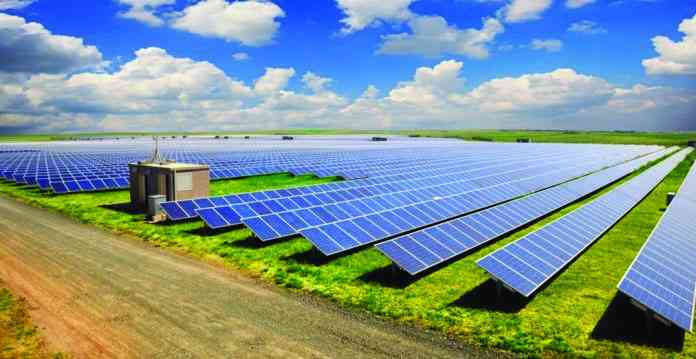
ZENT Enterprises, a subsidiary of national power utility Zesa Holdings, said this week it planned to establish a solar PV manufacturing plant to capitalise on substantial demand for solar panel infrastructure.
This comes as global experts on climate change adaptation have implored authorities to speed up adoption of renewable energy to mitigate the negative impact of global warming.
Research from the Zimbabwe Energy Council showed that the country has a renewable energy potential of 1 872 megawatts (MW) of power, at a time when the electricity deficit is between 1 200MW and 1 600MW.
Godfrey Mugaviri, managing director of Zent, told the Zimbabwe Independent that the plant will guarantee that all Zimbabweans have access to power and help to improve security of supply.
“Benefits obviously will improve the security of supply and ensure we march towards universal access to electricity by all Zimbabweans,” he said.
“This will also decarbonise our economy and mitigate against climate change challenges. This will also accelerate total electrification of our nation, create employment, promote rural industrialisation and improve food security especially when these technologies are deployed in agricultural sectors. It will also improve the quality of life of our citizens,” he said.
Strides have been made in Zimbabwe to fast track the adoption of renewable energy such as the use of solar energy.
According to Energy ministry statistics, Zimbabwe’s revised nationally determined contribution target is 40% per capita emissions reduction across all sectors of the economy by 2030, relative to the baseline emission figure of 2017.
- Low tariffs weigh down ZETDC
- ‘Systems disturbance hits Hwange Power Station’
- Zesa doubles power charges
- Kariba, Hwange power plants obsolete: Govt
Keep Reading
The energy sector contributes about 37,71% of the total greenhouse gas emissions through thermal power generation, followed by residential (19,08%), road transportation (15,48%) and agriculture (13,84%).
In line with the set targets, the sector has managed to introduce two key policies to drive the implementation of renewable energy projects and programmes, namely the Renewable Energy Policy and the Biofuels Policy .
Mugaviri said the cost of the project will be determined precisely by a comprehensive feasibility study, adding that there is a huge potential market for solar in Zimbabwe.
“You will also appreciate that Zent has completed a feasibility study of the solar panel market in Zimbabwe. In brief, this study shows that there is huge market potential for solar panels infrastructure,” he said.
“So while we have a budget, we leave the supply market to determine related costs based on our procurement processes. Otherwise we run the risk of pre-empting figures to potential suitors.”
Mugaviri revealed that Zent was at the centre of providing engineering solutions to the electricity sector in Zimbabwe and beyond.
According to Zent, they have signed numerous memorandums of cooperation.






